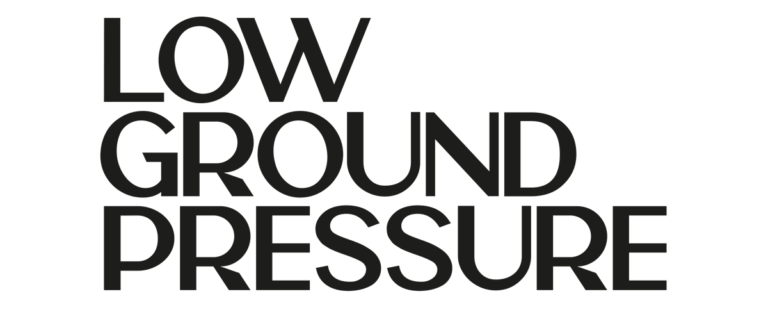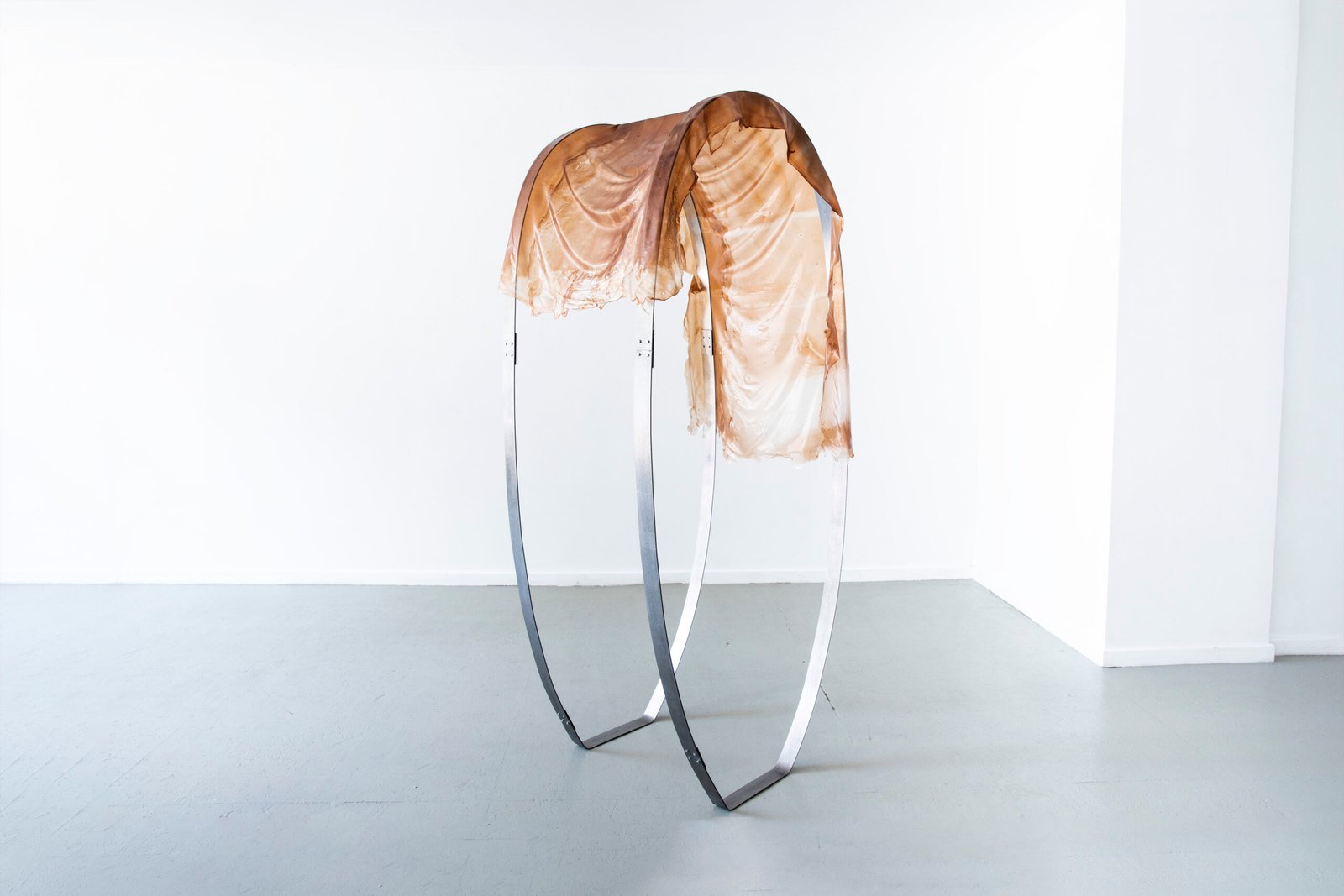
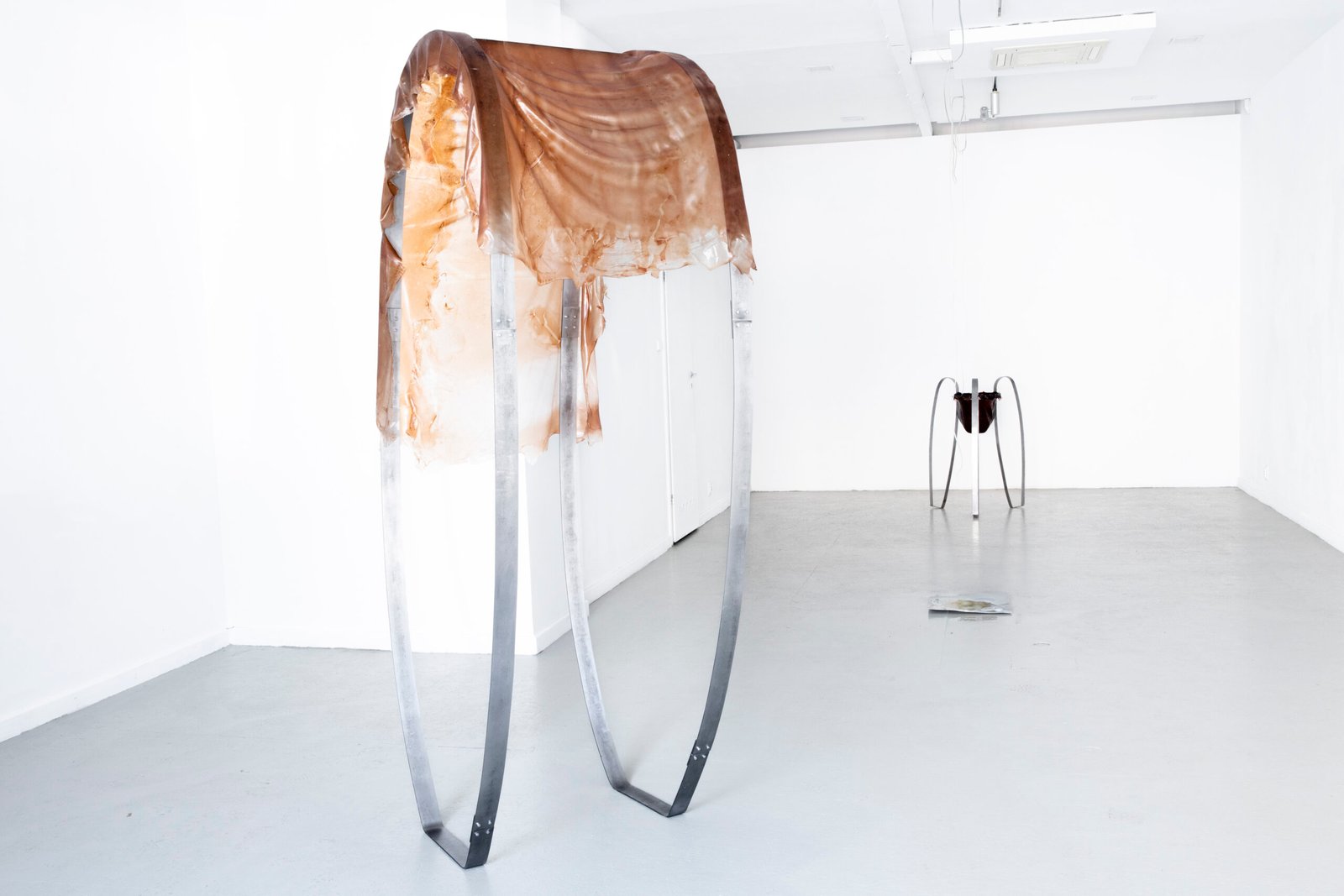
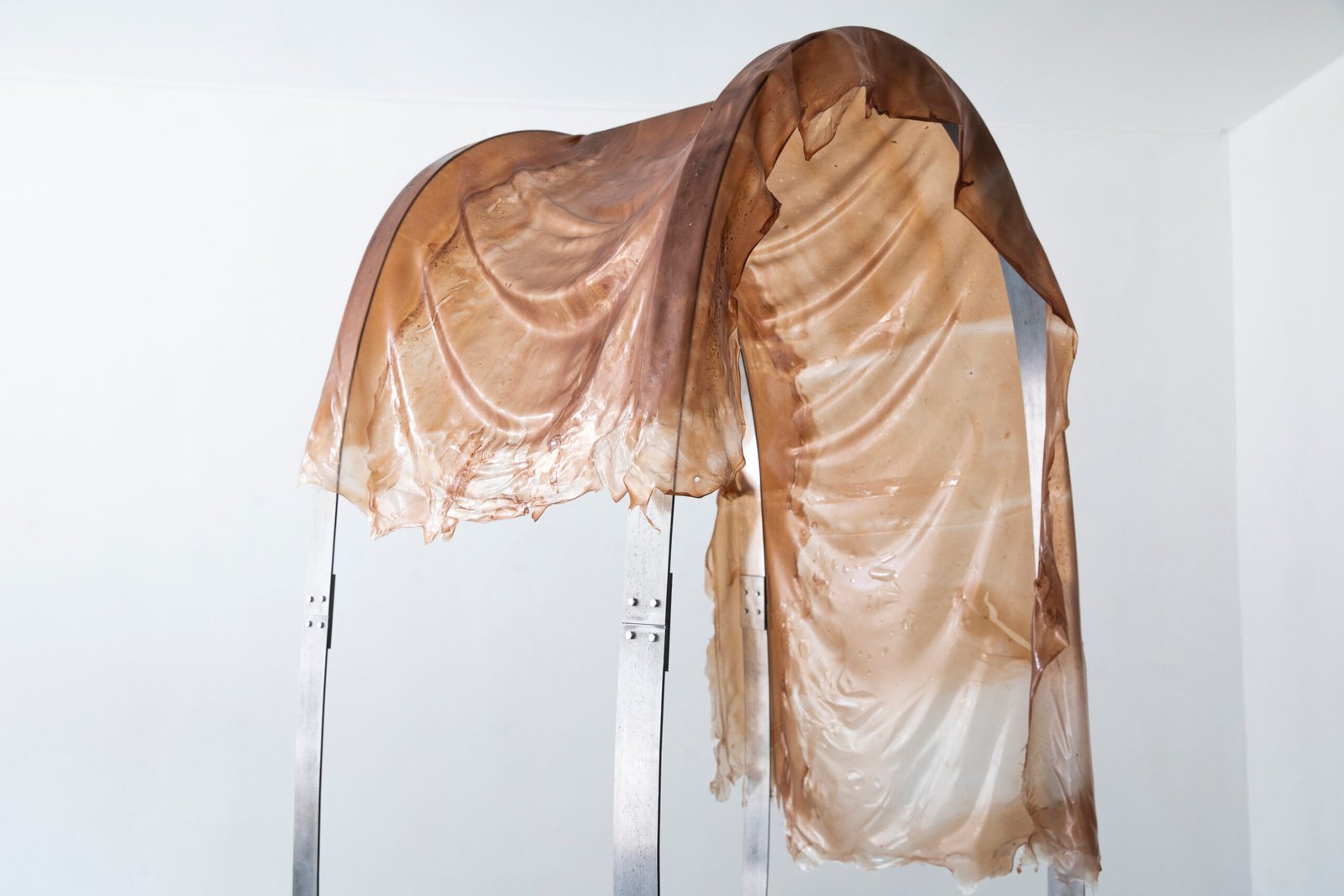
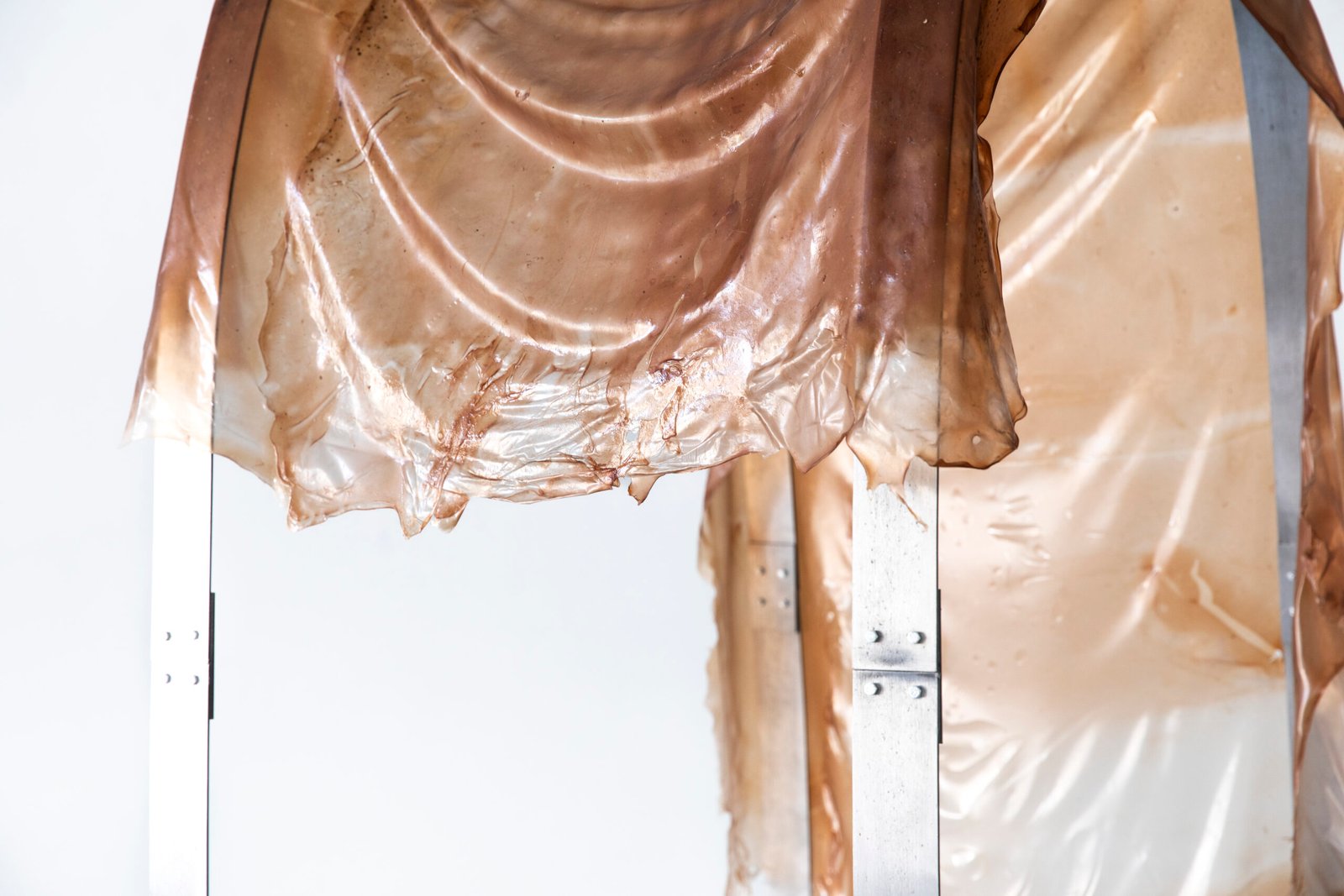



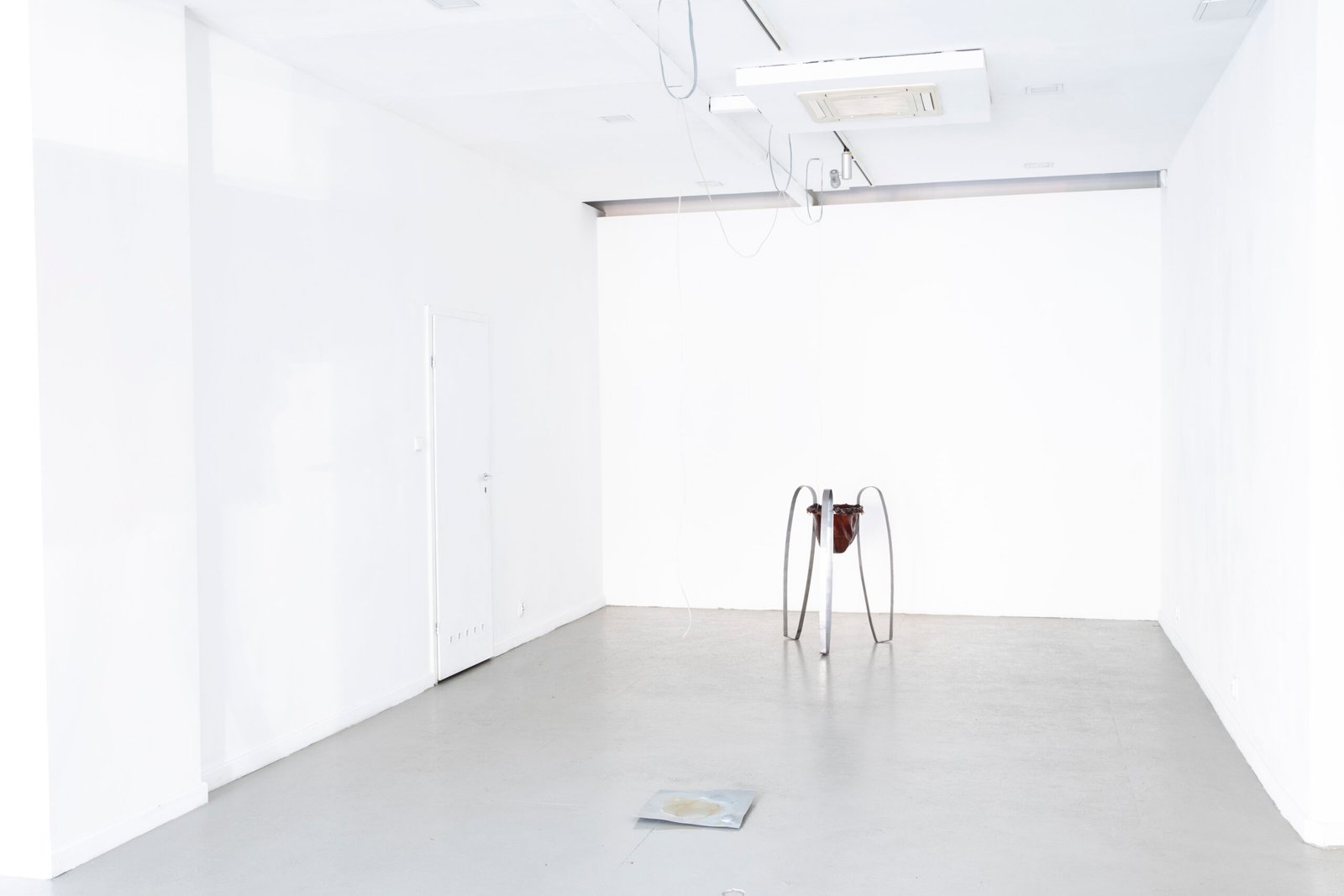
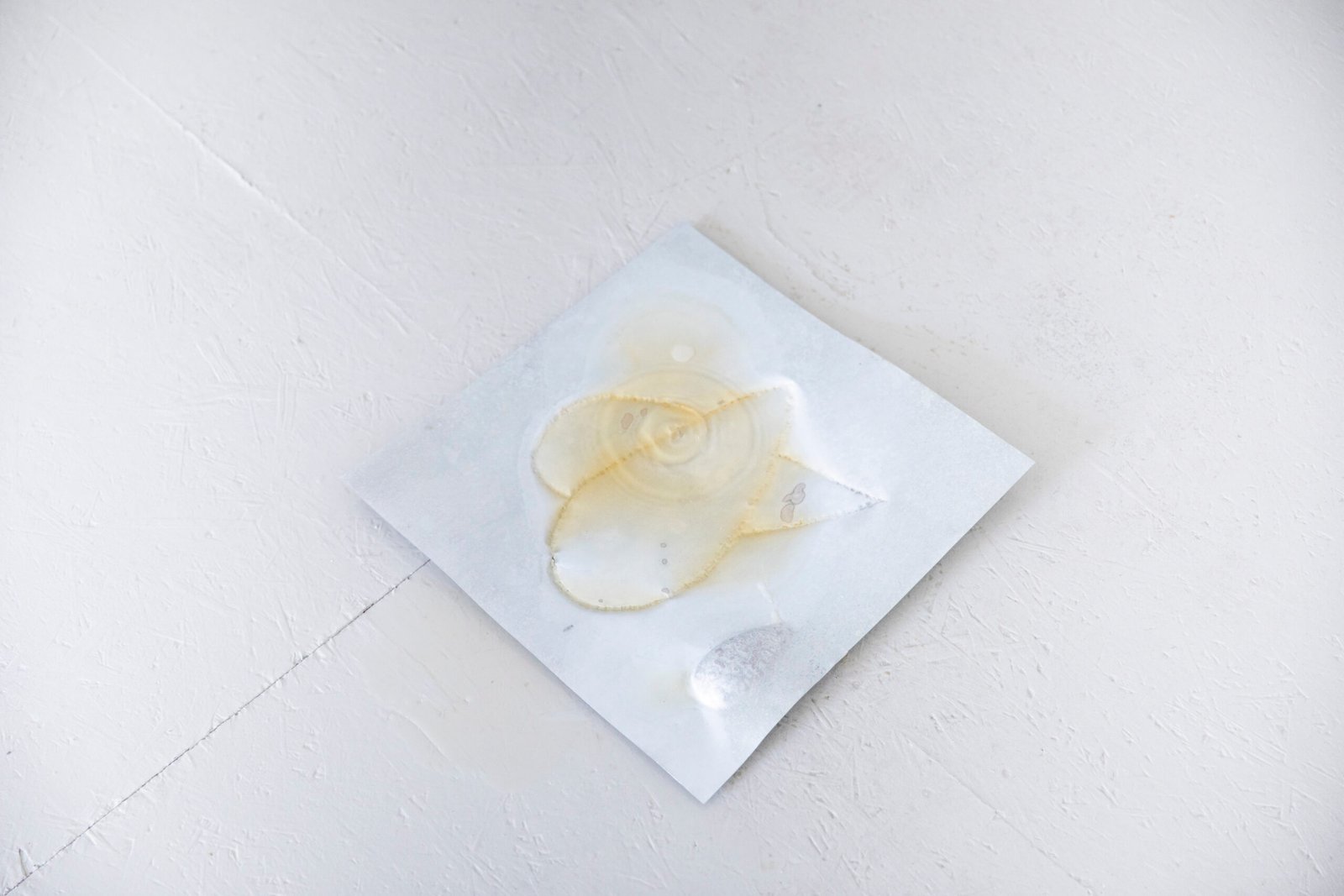
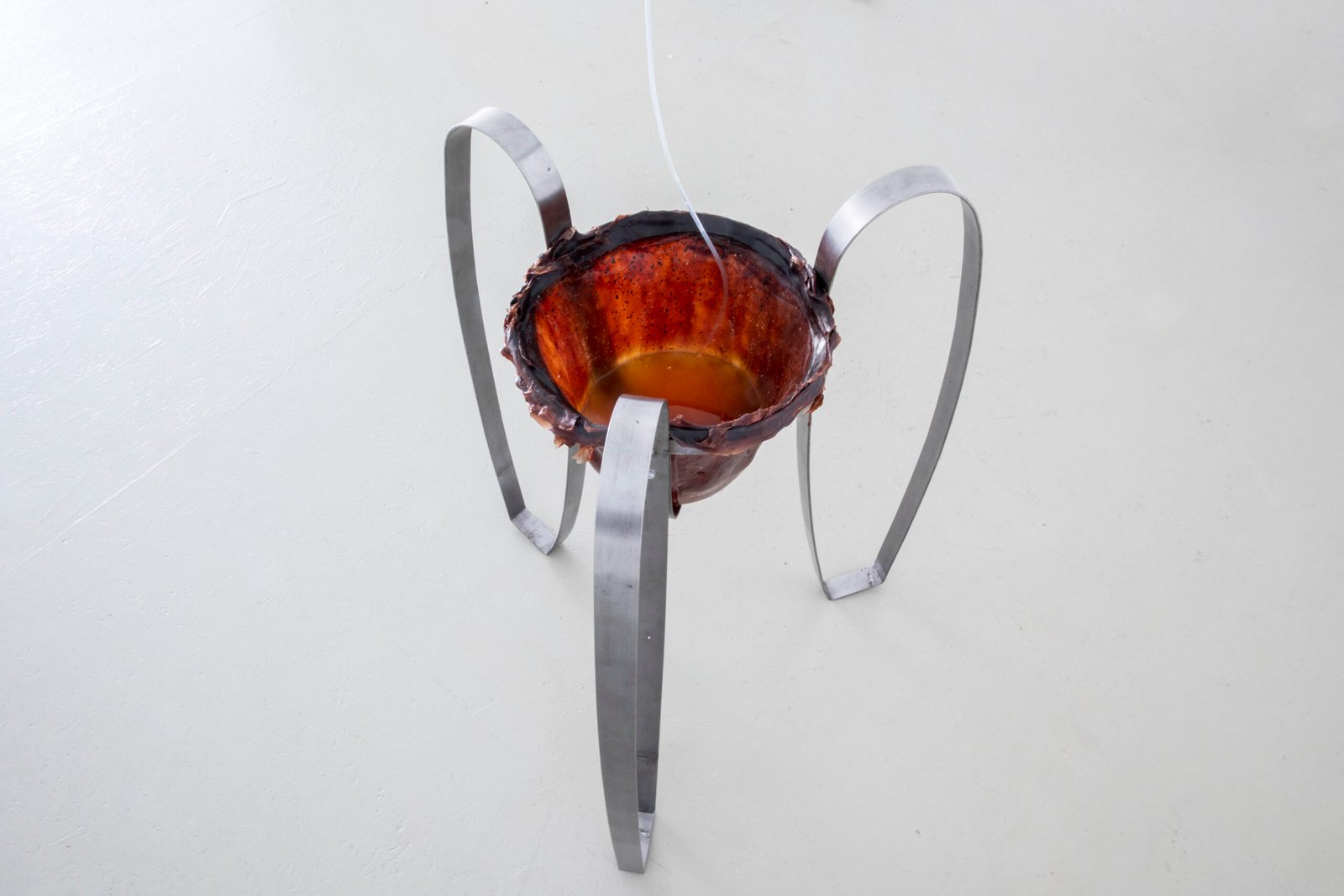


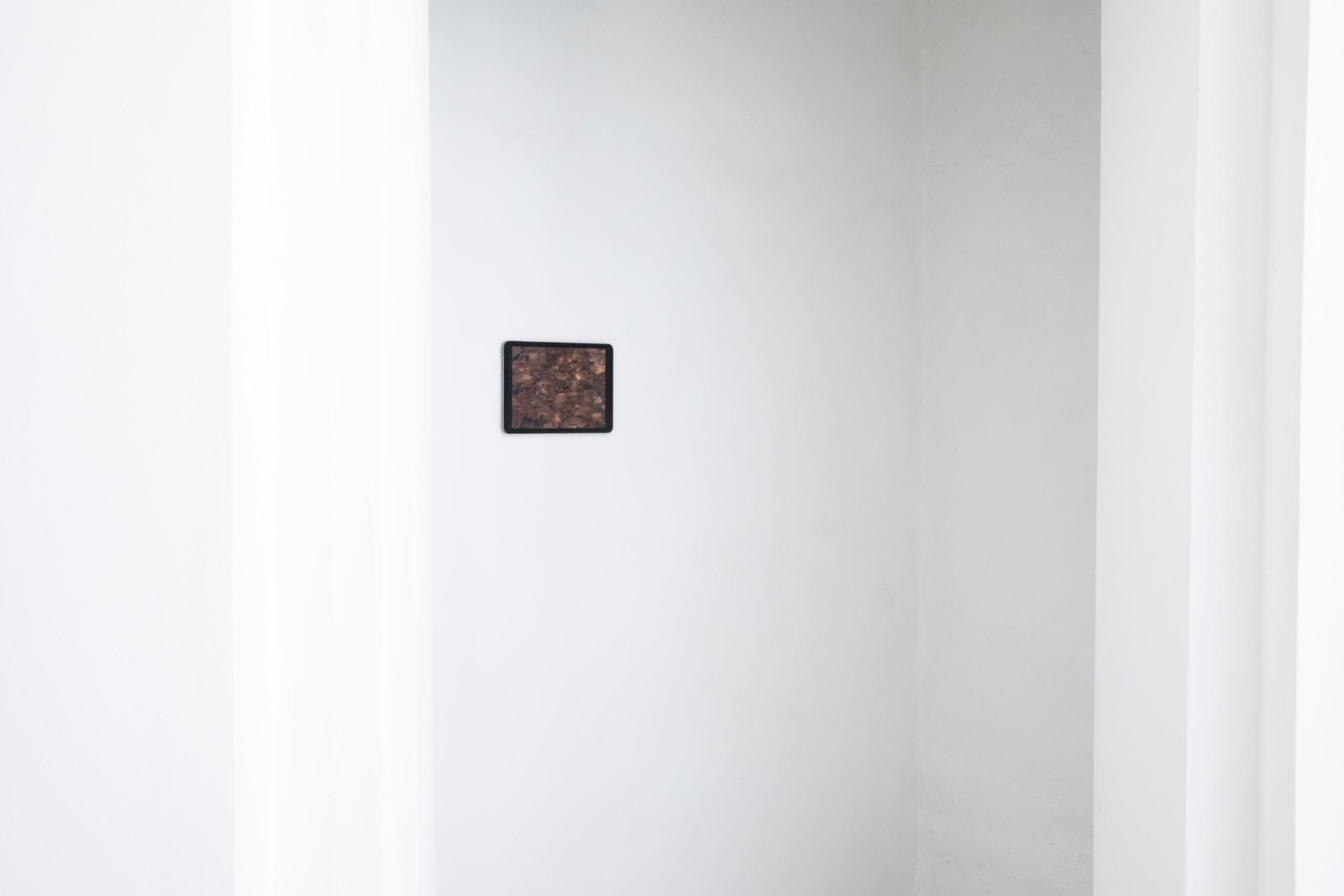

„The undoing begins with a potion poured into a silver soup tureen before she delivers it to the table, with acts of sabotage and destruction, with idleness and destitution.”
Saidiya Hartman, The Plot of Her Undoing
The apple carries both a material and a symbolic trace of guilt. I work with materials in which transformation and decay are inherent. I take the apple apart, deconstruct it, and look at it closely. I process them, creating a story full of both presence and disappearance. I use very tangible and physical matter that never appears in its entirety – it is absent, even though its presence is felt in each object.
Guilt becomes a consequence of cognition – it appears in the attempt to attain liberation. Every division is the product of an oppressive system, everything that does not fall within its norms is rejected. The category of “woman” is considered empty, impossible to fully grasp, yet strongly ordering. Cognition becomes an act of challenging and transgressing boundaries. The act of transformation (biting the apple) provokes questions about how we perceive reality, whether we can accept shifting forms or cling tightly to rigid categories. Our way of thinking has been distorted by norms in such a way that oppression is seen as a natural consequence of crossing boundaries.
One might assume that submitting to imposed roles will shield us from oppression. As if functioning in a given pattern could give us refuge from what we might experience outside of it. But even fulfilling assigned roles cannot protect us from exclusion. No space guarantees safety.
At the moment when obedience does not guarantee peace of mind, there is no harm in taking a risk – by tearing down the framework, or at least trying. Yet every attempt to break away from surrounding patterns carries not only a sense of guilt but also punishment. Anything that steps beyond the established order must be punished. Conditioning becomes a significant mechanism here: a slow, persistent training that teaches us that any act of “standing out” will be punished—often disproportionately to the action itself.
Norms already account for dissent. There is no agency to be found in actions that are captured, categorized, and punished. Agency begins with refusal—with undoing, with avoidance, withdrawal, with becoming an obstacle. Perhaps agency lies in silent resistance, in what is still unknown, what remains opaque.
